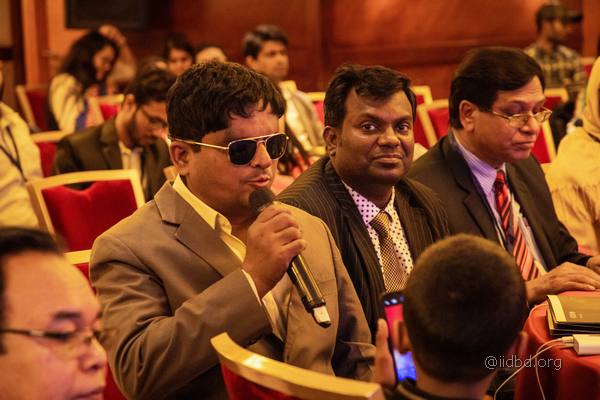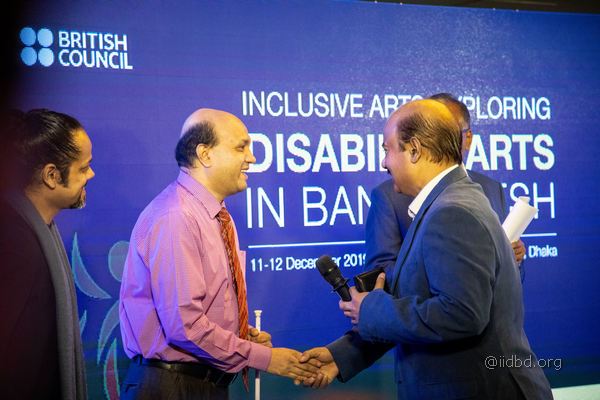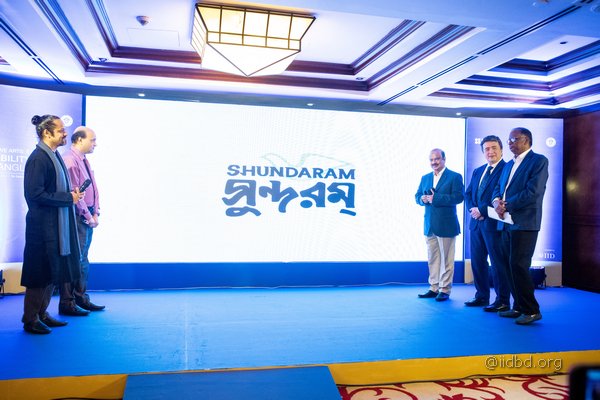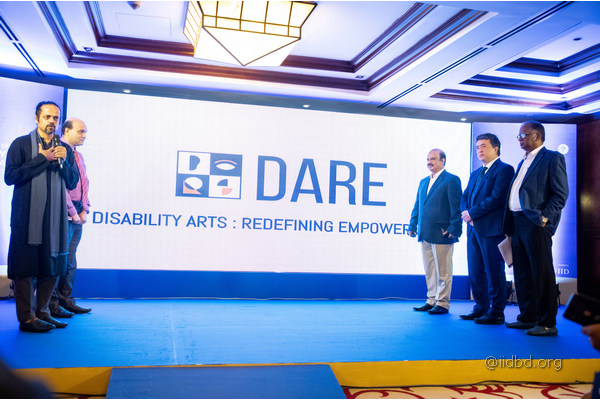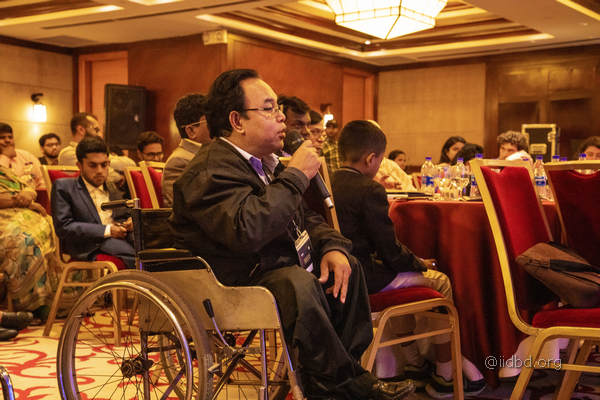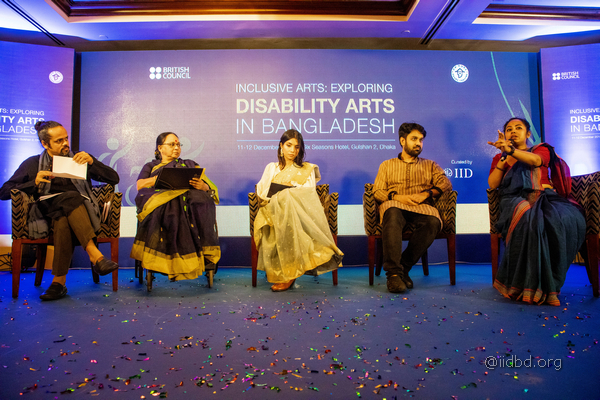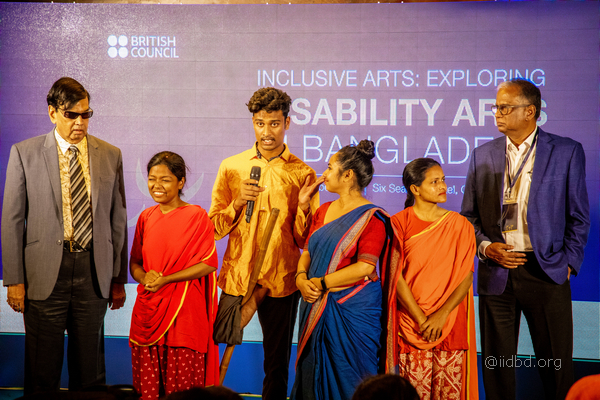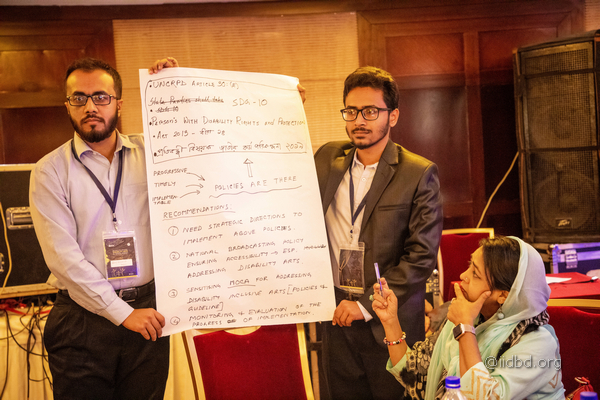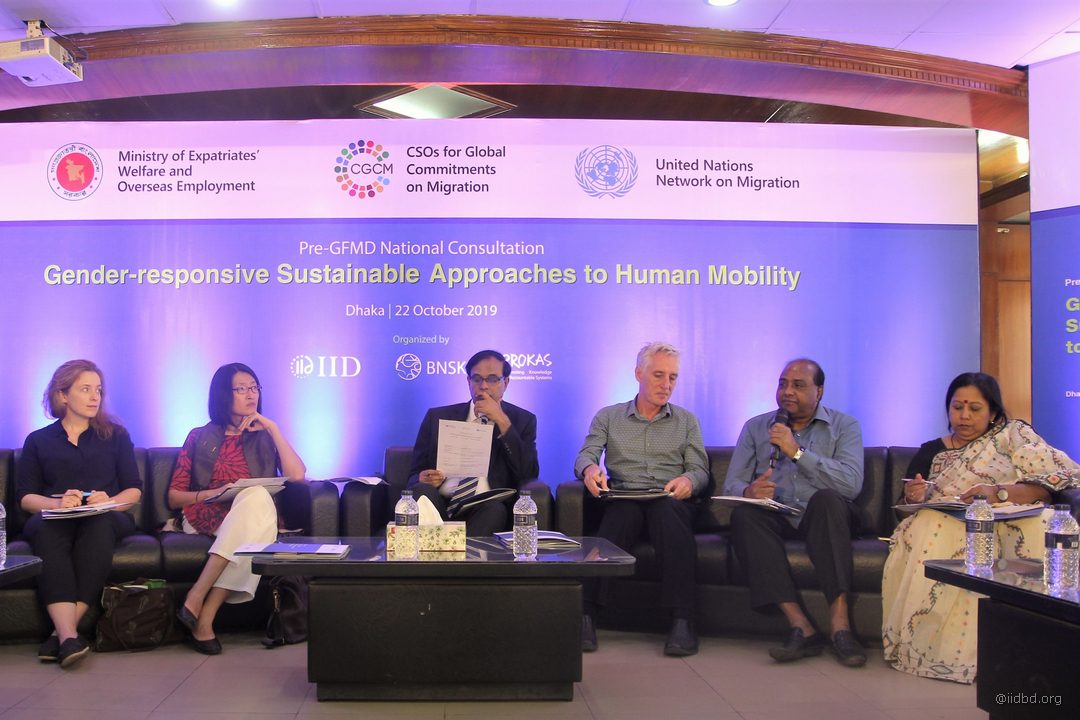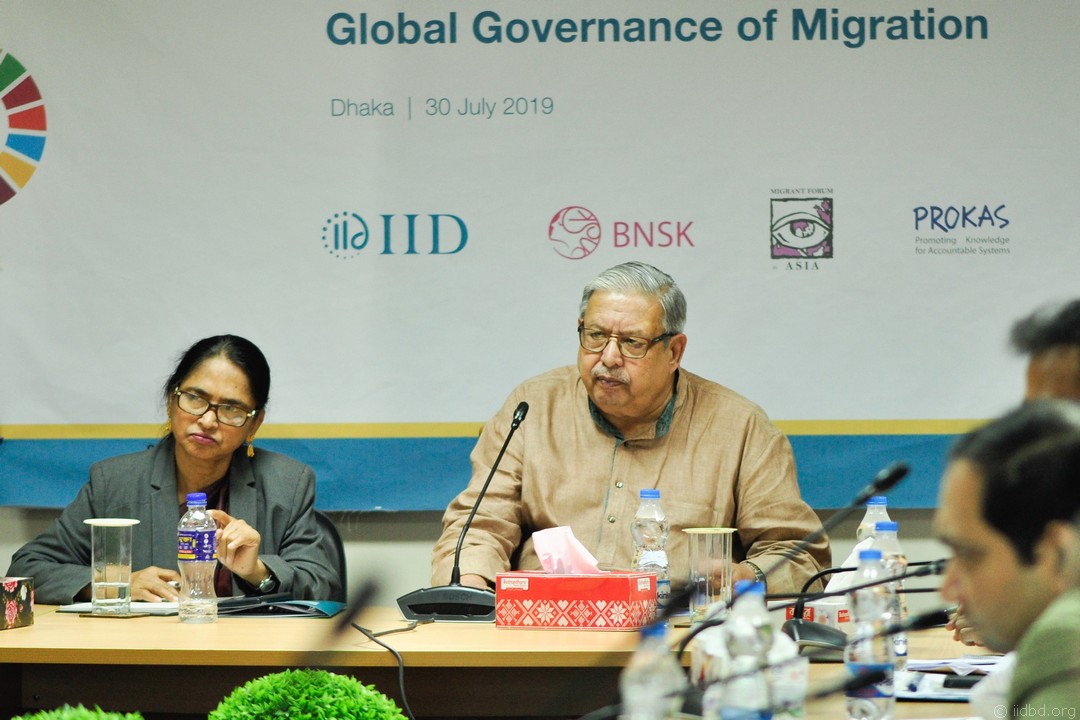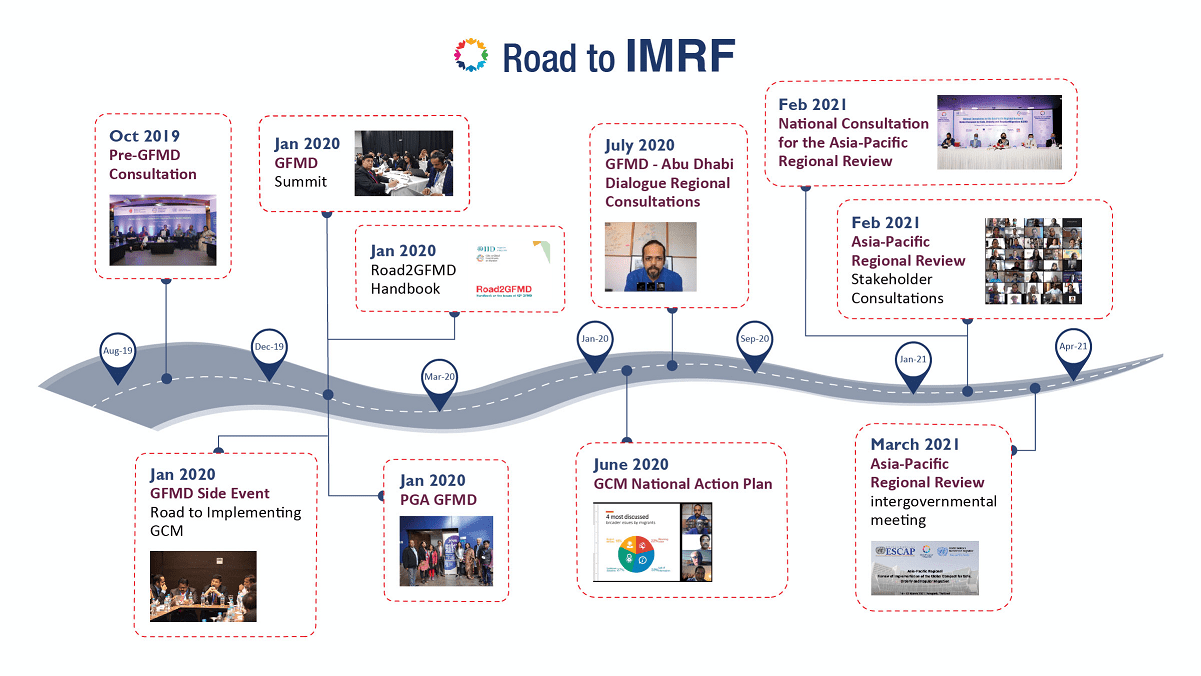Disability art is art. Whether it is poems or painting or music or comedy or theatre, it is seriously intentioned creative work and made with some sort of aesthetic purpose. Thus, in the case of arts created by disabled people, the focus should be on art, not disability.
This observation came from a high-level consultation on the ‘Inclusive Arts: Exploring Disability Arts in Bangladesh’ held on 11 December 2019 in Dhaka. The event was hosted by the British Council in partnership with Dhaka Theatre and Institute of Informatics and Development (IID).
After their inspiring experience with disability arts theatre over the past years, Dhaka Theatre, in collaboration with the British Council and its new initiative ‘Disability Arts’ and ‘Shundaram’, aims to explore the challenges and opportunities of disability arts in Bangladesh and spread arts with the disability community across the country.
One of the primary focuses of the initiative is to make sure that the people from the disability community in Bangladesh can actively get involved with the mainstream arts community as spontaneously as any other able-bodied people and while doing so, they are not considered or portrayed just as disabled people in arts, rather as artists who can contribute to the art community significantly.
With this in mind, to create a contextual platform, that can be utilised to dispel the social stigma associated with disability, and build an accessible bridge between arts, disability and society, this meeting brought together relevant stakeholders from disability and arts sectors.
Cultural Affairs Secretary Dr Abu Hena Mostafa Kamal, opened the session and highlighted that the government has agreed to ratify the Marrakesh Treaty. He also mentioned that the government is working hard to provide more support for the disability community of the country.
With the aim to identify solution-driven approaches for the disability community, the meeting also facilitated four brainstorming sessions on policy implications, infrastructural support, communication and awareness and financing, which generated specific recommendations on the topics that can be utilized while working in the disability and art sectors in the country.

